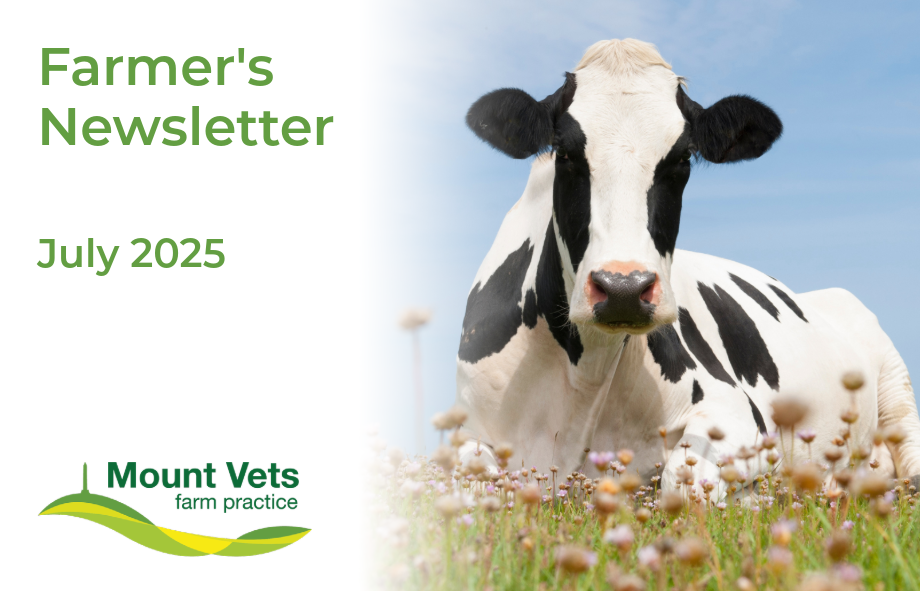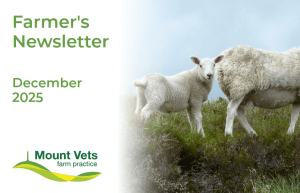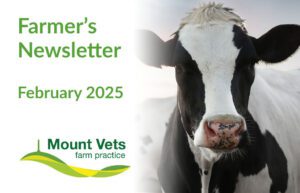July 2025
Here is the latest from our farm team at Mount Vets. If you would like any further advice or would like us to cover something in the next newsletter, please call us on 01823 662286 or contact us here.
We want to hear your feedback… Leave us a review!
We value your feedback and comments and would appreciate if you could take the time to leave us a review! Please follow the link to share your thoughts.
Barber’s Pole Worm
Despite the recent dry weather, we’ve unfortunately seen our first case of Haemonchus contortus (Barber’s Pole Worm) this grazing season – with some lamb deaths.
This blood-sucking roundworm can cause sudden and severe losses, so it’s important to stay alert.
Clinical signs to watch for:
- Sudden death
- Pale gums or eyelids
- Weakness or collapse
- Bottle jaw (swelling under the jaw)
- Weight loss despite good appetite
This parasite rears its head in the back end of summer with warm and wet conditions favouring its emergence. Haemonchus is most common in growing lambs, but adults are affected too.
There are two reasons why adult sheep may not develop adequate immunity to haemonchus:
- Firstly, traditional worming regimes of all year-round worming means sheep will not get adequate exposure to worms to build immunity.
- Secondly, development of infections seems to be sporadic due to larvae development being highly dependent on weather conditions. This means that the threat is not consistent.

This is the one worm that will not give you dirty back ends, as diarrhoea is not a feature of this disease. The main way this worm causes an issue is by damaging the stomach wall and feeding off the blood. Each adult worm can remove 0.05ml of blood per day, which doesn’t sound massive at first, but when infections commonly hit 5000 worms, this is 250ml of blood per day. The average ewe has approximately 4L of blood, signs of shock, collapse and death will show when they have lost 30% of their blood volume. It takes just 5 days to reach this level of blood loss.
The acute presentation happens when sheep graze heavily contaminated ground. Clinical signs are very severe, with rapid breathing and heart rate, collapse and sudden death occurring. One key sign is pale mucous membranes/third eyelid. Chronic infections also occur. As well as anaemia, another classic sign of is bottle jaw (submandibular oedema), which can sometimes be mistaken as a sign of fluke infection.
Diagnosis can be made via post-mortem with direct visualisation of the worms in the abomasum, or through worm egg counts.
Management
- Effective quarantine will help prevent introduction into the flock; this is essential when purchasing new stock.
- Monitor worm burdens with regular worm egg counts (don’t forget, you get 3 of these included in the health group membership!). Higher burdens would indicate possible haemonchus infection, as they are very prolific breeders.
- Checking the condition of your ewes and lambs. BCS scoring will help to identify stock that are struggling.
- Monitoring anaemia is another way of keeping an eye on the possibility of a haemonchus burden. The FAMACHA scale has been specifically designed to do this
This allows strategic dosing of only the affected sheep. By leaving those unaffected, you will decrease the risk of wormer resistance developing, as sheep can be infected by more than one species of worm at the same time.
We advise carrying out faecal egg counts every 6 weeks throughout the grazing season to monitor parasite burden and guide treatment decisions. Speak to us in the practice if you’re concerned.
Heat Stroke in Cows
Anyone, farmer or not, has been talking about how warm it has been! Cows get heat stressed above 15°C, and at the time of writing the outside temperature is 28°C, safe to say the girls will be feeling the heat.
Signs of heat stress in cattle include:
- Decreased lying times – cows find it easier to cool off when standing, for every 1°C above 21°C, cows lie down for 20 minutes less. This leads to lameness issues and reduced cudding
- Huddling into groups
- Reduced intakes (and therefore yield)
- Obvious signs of overheating such as increased respiratory rate and effort, open mouth breathing and increased salivation
Ways to combat heat stress:
- Provide shade – turn into filed with hedge/tree cover or allow access back into the shed
- Reduce gatherings during the heat of the day
- Consider installing fans, or if you have them keep them running for longer
- Ensure plenty of drinking water access – intakes increase dramatically up to 20% during hot spells

If you have a suspected heat stroke case, provide them with adequate access to water, consider pumping her with electrolytes (but sometimes they are in too much respiratory distress to achieve this safely), provide shade, cold hose them and consider giving a dose of anti-inflammatories to help reduce systemic effects within the body. If you need advice about heat stroke, we are always in hand as this is considered an emergency.
It’s also important to also look after yourselves in this weather! Make sure you have plenty of fluids and provide yourself sun protection – all too easy to forget during busy periods, but who will do your work if you’re laid up with heat stroke?
Upcoming courses

DIY Articial Insemiation Course
Our next 4-day DIY AI course will run on 19th, 20th, 22nd & 23rd August 2024.
This DEFRA approved course is aimed at anyone who has no previous experience in the artificial insemination of cows.
The 4-day course is run by our experienced farm vet Rob Mangham and is full of theory and practical sessions to make sure you leave feeling confident and safe in all aspects of AI.
The cost of the course is £500 + VAT, with a £50+VAT deposit to secure your space.
(Deposit will be taken off final amount)
Please ring the practice to book your place on any of our courses on 01823 662286 or email farm@mountvets.com
Meet the Team!
We have an experienced & friendly team here at Mount Vets. You might already recognise a few faces but over the next few months we will reintroduce you to some of our excellent team. To read more and see more of the faces of Mount Vets visit our team page, and be sure to follow us on Instagram and Facebook.
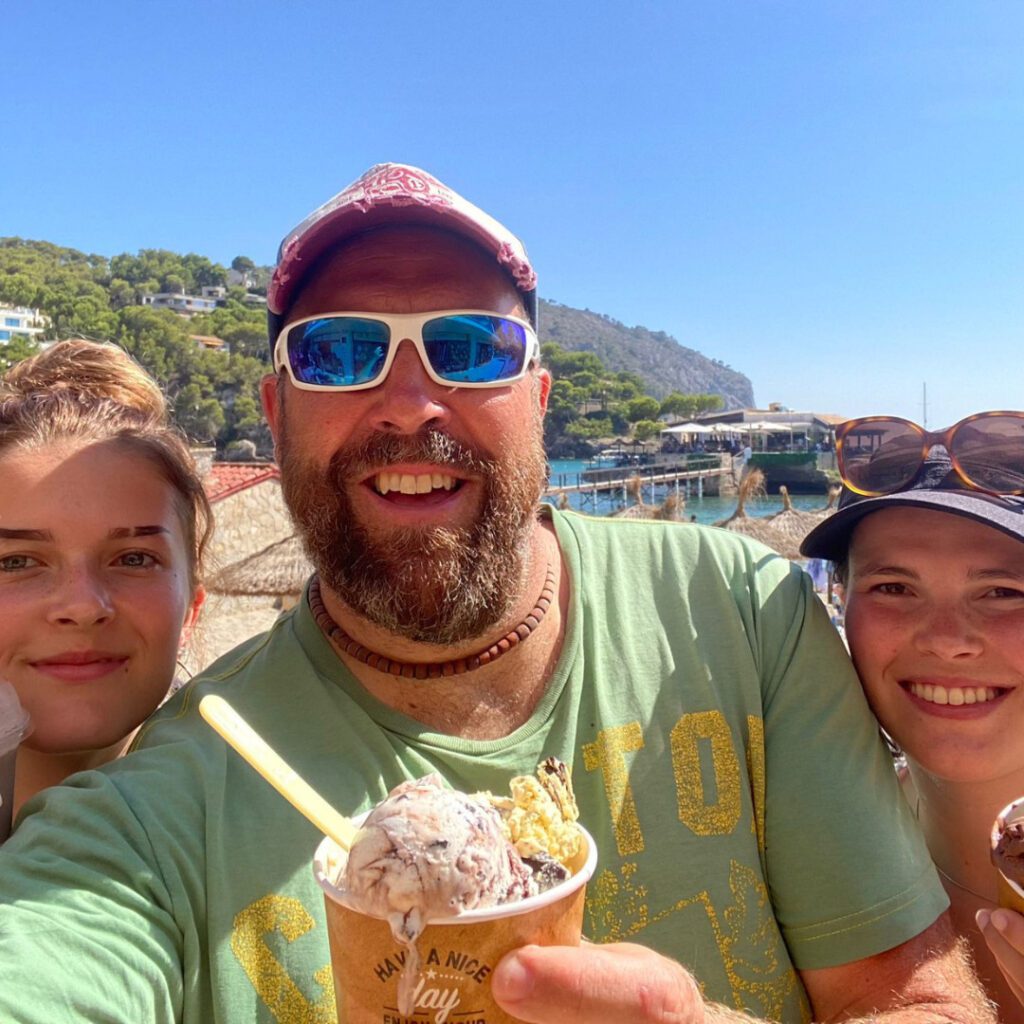
Piers Pepperell
Director
Many of you will already know our Mount Vets Director Piers; but did you know he has appeared on tv show Blind Date with Cilla Black?
Piers loves to spend a free day with his two daughters and three dogs, surfing on the North Devon Coast.
His favourite vet call out was when he was called into the waiting room and unknown to him at the time, but he then met his wife to be. She had brought in her eight baby bunny rabbits, which led on naturally to a 10-minute chat about pig wormers and her asking Piers out on a date.
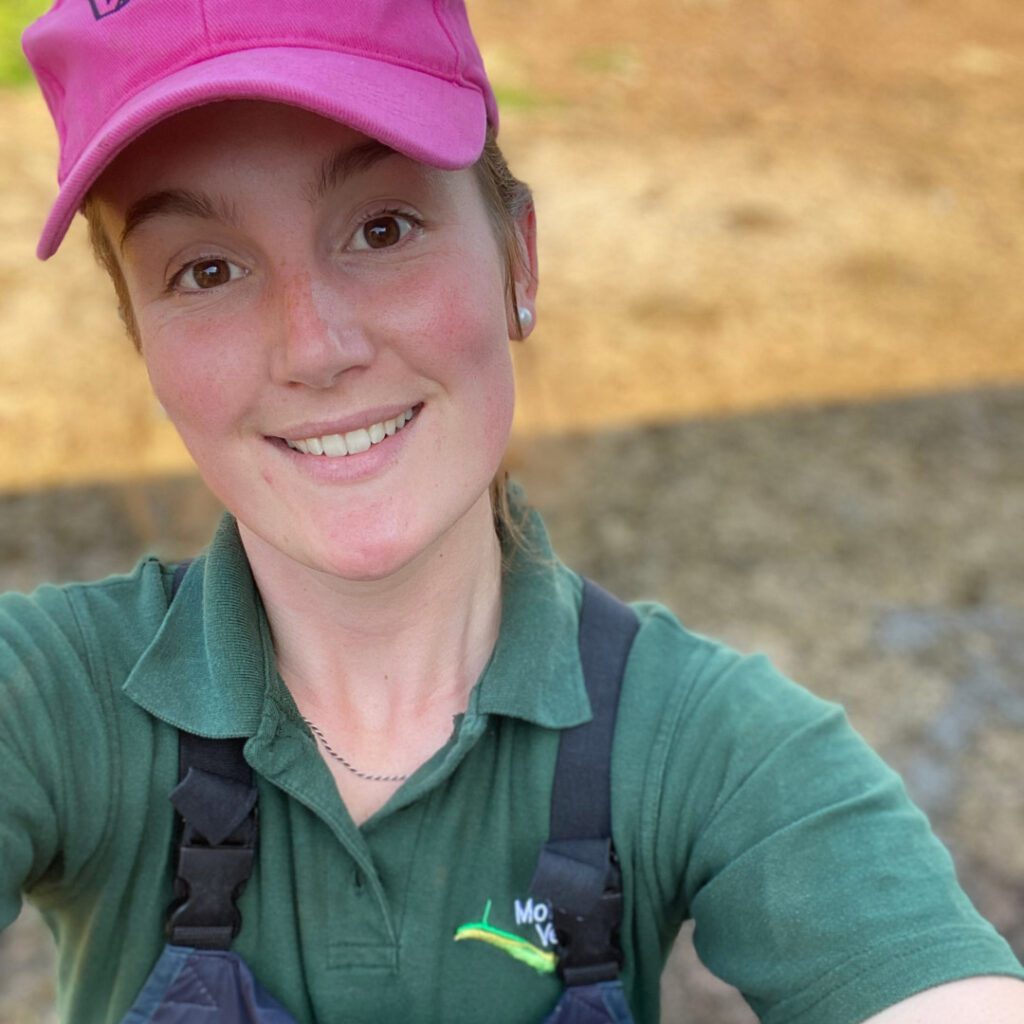
Pip White
Vet
Pip is one of our large animal vets. If you’ve met her, you will probably know how much she loves her cows. So much so, that she loves to spend her free time at home with her cows! That, or in the showring showing them. 🐮
Pip graduated as top student in her year from the University of Surrey.
Her favourite song is Mr Brightside by the Killers.
Have a question about any of the topics covered in this newsletter?
If you need any assistance with the topics covered in this newsletter, please do not hesitate to get in touch with our experienced farm vets who will be able to help. Call 01823 662286, or contact us here.
